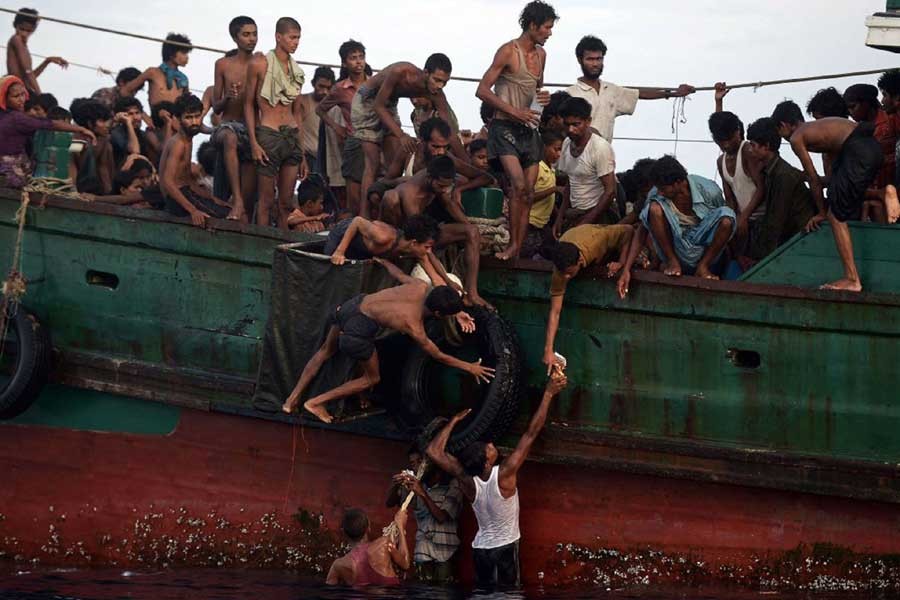Since August 2017, the horrifying state of the Rohingya people in Myanmar has drawn the attention of international community. The vicious and inhumane operations of Myanmar military upon its own citizens -- acts of hatred, murder, mass killing (of civilians) and destruction of property -- have been termed genocide by various organisations, scholars and individual states. However, the United Nations has, until now, labelled the Rohingya crisis as 'grave violation of human rights' or 'ethnic cleansing', while maintaining reservations to recognise it as full-fledged genocide. This article focuses on the core reasons behind the UN's stringent approach.
According to Article II of the Convention on the Prevention and Punishment of the Crime of Genocide -- commonly known as Genocide Convention of 1948, genocide is defined as acts intended to destroy, (wholly or partly) a national, ethnic, racial or religious group. Such acts include killing, causing serious bodily or mental harm, and inflicting conditions of life on a group of people meant to bring about its physical destruction, in whole or in part. Acts of genocide are mostly committed against civilian people. To mark any crime as genocide, it does not require death of millions of people. The death of even one individual can be termed genocide if the intention can be properly proven. Thus to prove any crime or criminal act as genocide, the most crucial element is 'culpable mind' (the criminal intent).
Myanmar's systematic campaign of mass murder, atrocious acts (rape, killing) upon the civilians and destruction of their valuable assets and property is proof enough of specific intent to destroy the Rohingya people. Genocide is considered to be the crime of all crimes, the charges of which are grave and with which various other issues are attached.
The use of the term 'genocide' can increase international pressure on Myanmar. While everyone is concerned about the UN's role in this matter, we are forgetting about the P5 countries (Russia, United States, United Kingdom, France and China) of United Nations Security Council (UNSC) without whose approval, no Security Council resolution can become effective.
In 2007, China and Russia cast a double veto on a draft resolution calling on Myanmar to cease military attacks on Rohingyas and other ethnic minority people. Also in 2017 when around 7,00,000 Rohingyas fled into Bangladesh from Myanmar after facing murder, rape and other atrocities, UNSC miserably failed to pass any resolution due to the vested interest of one or more of the five permanent members.
In the similar fashion, the Security Council failed to act during the Rwandan genocide in 1994 due to the hidden vetoes of France and the United States. It was mentioned in an independent UN report that the failure of the Security Council to act led directly to the genocide.
Thus, it is feared that if there is a move in the UN to pass any resolution declaring the Rohingya crisis as genocide, some of the P5 countries would use their veto to block it.
However, a positive development is that the UN has finally planned to gather proper evidences of genocide on Rohingyas through judicial investigation. Adama Dieng, United Nations Special Adviser on Genocide Prevention has stated that "an independent team will be sent to Myanmar so that they can find the five acts of genocide, which are essential to bring the culprit under justice." One hopes that this commission will not suffer the same fate as that of the commission of 2016, led by the former UN Secretary General Kofi Annan, which faced insults in Rakhine state of Myanmar.
Shara Arzooman is a postgraduate student at the department of criminology and criminal justice of University of Dhaka.


